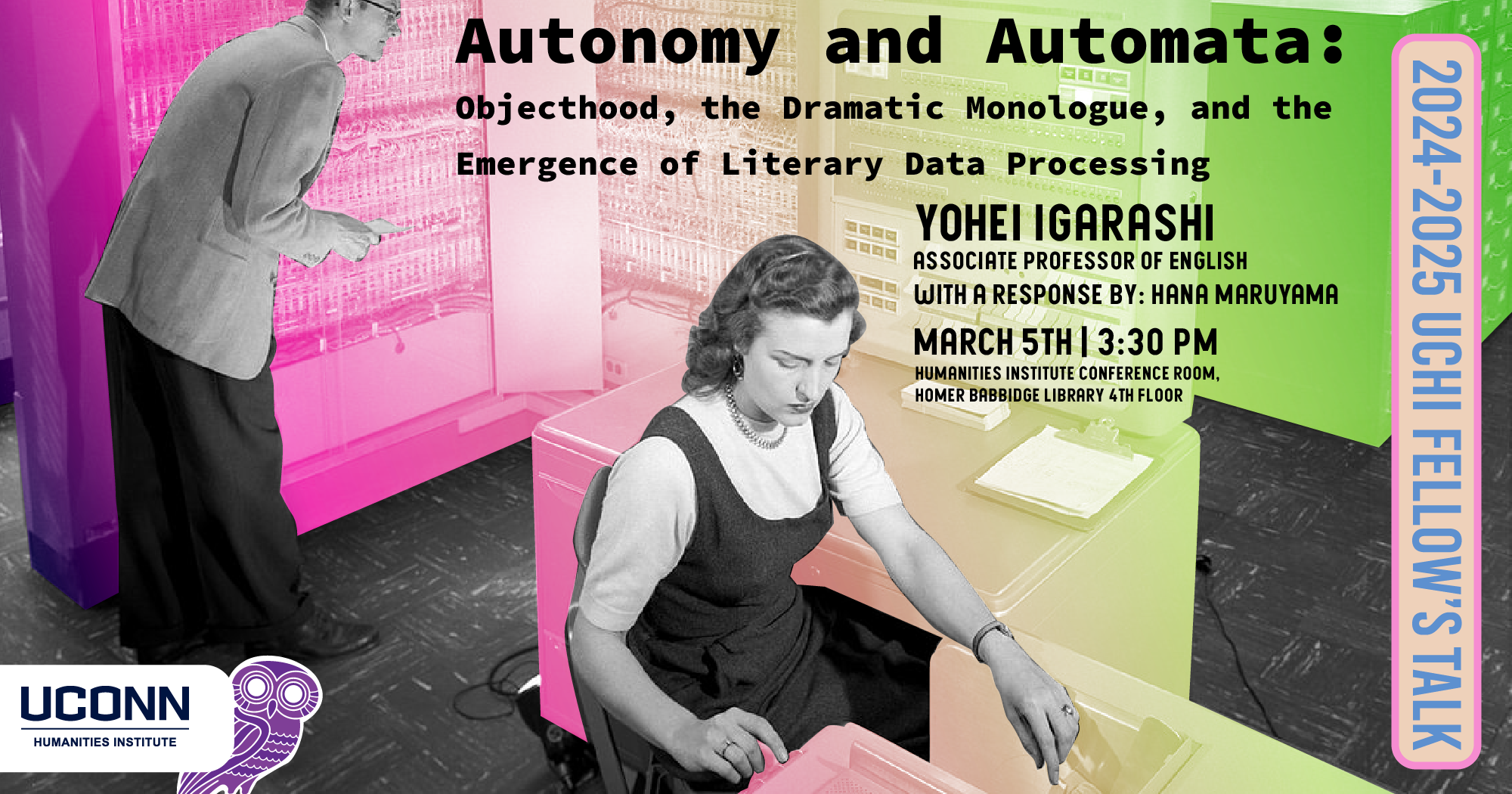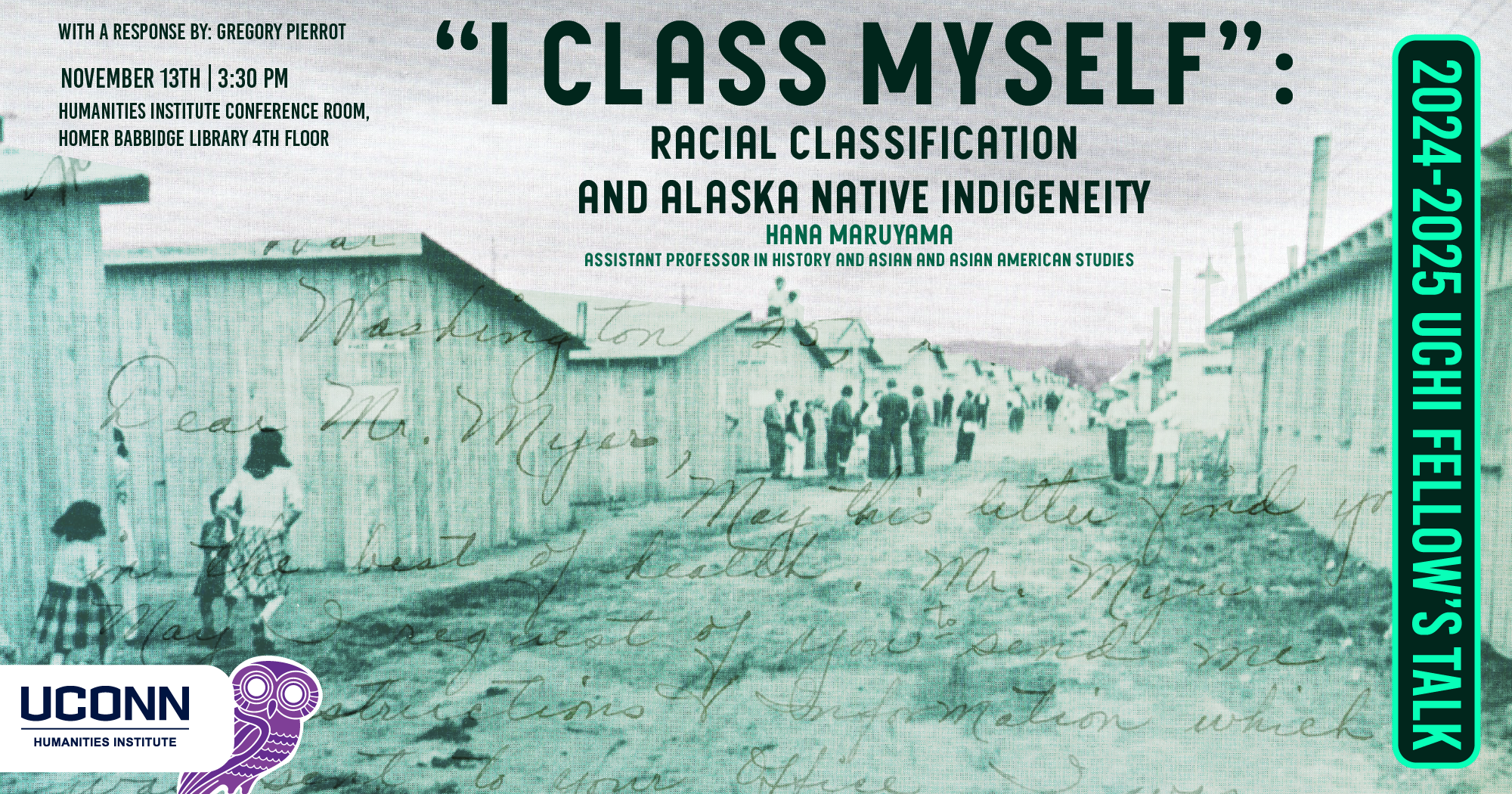
Autonomy and Automata: Objecthood, the Dramatic Monologue, and the Emergence of Literary Data Processing
Yohei Igarashi (Associate Professor of English, UConn)
with a response by Hana Maruyama (History, UConn)
Wednesday March 5, 2025, 3:30pm, Humanities Institute Conference Room (HBL 4-209)
The event will also be livestreamed with automated captioning.
We should understand better the histories of computing in humanities disciplines. Focusing on literary studies, this talk offers an explanation of a particular event: the emergence of a practice called “literary data processing” around 1960, and the methodological revolution which—while projected from this practice—did not quite happen. Working outward from the writing of the literary scholar Stephen Parrish (1921–2012), this talk uncovers the questions that exercised literary computing and literary criticism alike at this historical moment, questions about humans, machines, language, and minds.
Yohei Igarashi is Associate Professor of English at the University of Connecticut. He is the author of The Connected Condition: Romanticism and the Dream of Communication (2020) and other writing, most recently a chapter on literary data in the Cambridge Companion to Literature in a Digital Age (2024). In 2023–2024, he was the Carl and Lily Pforzheimer Foundation Fellow at the National Humanities Center.
Hana Maruyama is an assistant professor in history and social and critical inquiry at the University of Connecticut. Her current manuscript discusses how the federal government exploited Japanese Americans’ World War II incarceration to dispossess American Indians and Alaska Natives and advance U.S. settler colonialism.
Access note
If you require accommodation to attend this event, please contact us at uchi@uconn.edu or by phone (860) 486-9057. We can request ASL interpretation, computer-assisted real time transcription, and other accommodations offered by the Center for Students with Disabilities.


